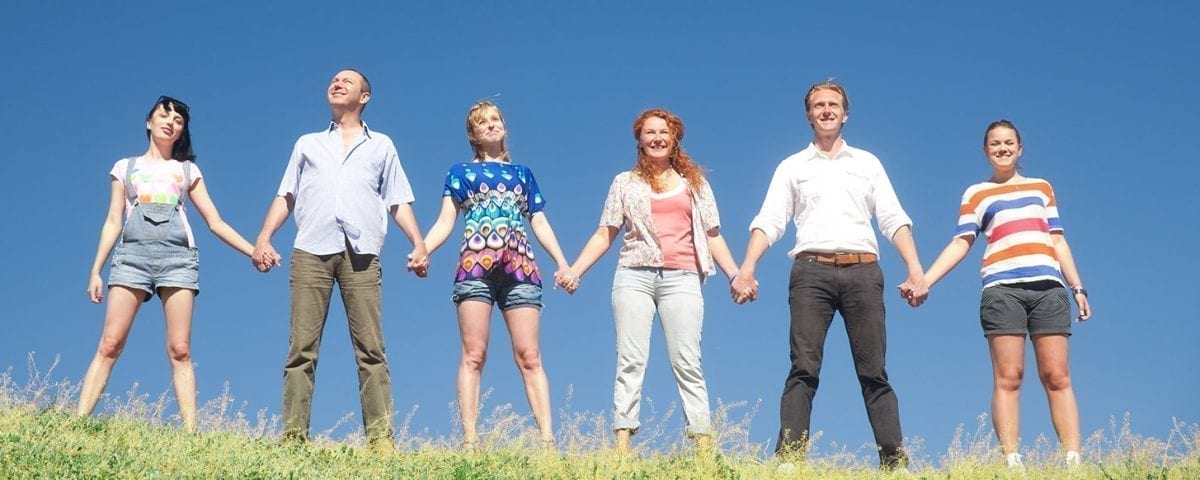Creating Goals in Early Recovery: Part 2
In the rooms we constantly hear the phrase, “One day at a time.” The thinking to stay in the “now” is often encouraged for those in early recovery, but these phrases or sayings should not deter you from creating some basic goals for your life, and for your recovery journey. Start with immediate goals for the present, and then work on long term goals for the future.
This way of thinking’s main purpose is to have long-term goals but in the meantime not get overwhelmed at the idea, and still live life one 24-hours at a time, and having the main focus be your recovery.
Make a 5 Month Plan: (Long Term Goal: Make a 5 Year Plan)
At Banyan Treatment Center we believe in the 12-Step methodology for addiction treatment. A huge part of this recovery program suggests getting a “sponsor”. A sponsor is a person who acts as a type of guide to your recovery journey. Their main focus is holding you as their sponsee accountable to your own personal recovery, but also teaching you about the steps as you complete them. A sponsor has already successfully worked the 12-steps of the AA program and has maintained a good amount of time in recovery, they act as a parental type of figure to get you started on your own journey through the steps.
After you have successfully completed the steps, and have at least a year clean (time varies on meeting type), the 12-step program encourages you to bring a fellow alcoholic or addict through the steps. The reasoning behind becoming a sponsor is for further healing and to give back to the cause. Reworking the steps every few years really helps a person grow through life and it never hurts!
Establish Healthy Relationships (Long Term Goal: Mend Broken Relationships)
When an individual is fresh out of treatment, it is a fairly fragile state of mind. In treatment, you are isolated from the real world problems, haven’t been in contact with any of your old friends (and most of your family) for at least a month, and now have to face the reality of changing the people you associate with. If you went to a treatment center with a strong alumni program, you will meet others along the same path of early recovery and have a chance to now establish new healthy relationships.
There are also many people in rooms who are facing the same challenges and are cool people! Get out to a meeting, find sober friends! When working the steps, you go through and really dig deep on how to have a healthy relationship- so apply these ideas to new friendships and watch them flourish more than relationships of the past.
A long term goal should be mending any broken relationships. Living in active addiction, there were probably many close relationships that have been damaged.
A common quote that you have probably seen in a variety of versions. It stands true, those who are closest to us usually are the ones who have seen us at our worst. In active addiction you have used, and abused, been enabled, and have probably maintained some (borderline) toxic relationships (if you are one of the lucky ones who still has people willing to be a part of your life).
Many of those freshly out of treatment have major family issues brought on from their past. One of the steps is to make amends, so use this time to really dig deep on the people you have wronged while living in active addiction. Apologies are just talk, but actions will always show your true intent. It can be discouraging thinking of all the people you have wronged in the course of your addiction, but don't be discouraged!
Start the conversation, and take initiative. Actions take time, so that is why this is categorized as a long term goal. As you grow through your recovery and focus on working your steps, you will truly become a better person. As you gain more sober time, those around you will notice the actions of your new life and this will give the opportunity to pick back up on those damaged relationships. In time everything is possible.
Before recovery, most addicts are doing just one thing- getting high. All free-time, thoughts, and actions were used to get more drink or drugs. Now looking at life in early recovery, you may be looking at your days thinking you have a good amount of spare time.
Use this spare time productively, boredom can be a huge downfall and relapse trigger. So staying busy is a key element in early recovery. Stay busy, be productive, and do things that truly make you happy. Think back to when you were a child, before the drug use. What did you really enjoy doing? Fishing? Making jewlery? Sports? Music? Cooking? There are literally hundreds of hobbies that are fun activities that you can really enjoy now with a clear mind. This is also another way to meet new “normal” people. So do your research, find some things you like, and get involved. The only person stopping you is you.
Finding your passion will come from finding hobbies. You may discover you love art, and expression (because that is real- right?) there are so many forms of art, imagine if you started doing animated graphics as a part of your art form? Then that turns into a hobby of graphic designs, which could be your passion and you then turn that into a career (a successful career nowadays).
These are just some examples, but can you even imagine? You never know what is in store for you unless you start exploring yourself. If you noticed, many of these short and long term goals relate to each other. One of the ultimate goals in our lives is finding and maintaining happiness without having to turn to alcohol or drugs. Working on yourself a little each day will bring you a happiness that is untouchable. You are already taking the steps by admitting the problem and seeking help, take the next steps and set some goals to take your life to that next level. Always work to be a better version of yourself.









